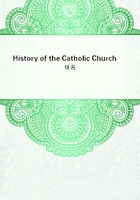
第72章
After a preliminary agreement with the Emperor, Paul III. convoked the General Council to meet at Mantua in 1537; but the refusal of the Lutheran princes to send representatives, the prohibition issued by Francis I. against the attendance of French bishops, and the unwillingness of the Duke of Mantua to make the necessary arrangements for such an assembly in his territory unless under impossible conditions, made it necessary to prorogue the council to Vicenza in 1538. As hardly any bishops had arrived at the time appointed it was adjourned at first, and later on prorogued indefinitely. Negotiations were, however, continued regarding the place of assembly. The Pope was anxious that the council should be held in an Italian city, while Charles V., believing that the Lutherans would never consent to go to Italy or to accept the decrees of an Italian assembly, insisted that a German city should be selected. In the end as a compromise Trent was agreed upon by both parties, and the council was convoked once more to meet there in 1542. The refusal of the Lutherans to take part in the proposed council, the unwillingness of Francis I. to permit any of his subjects to be present, and the threatened war between France and the Empire, made it impossible for the council to meet. Finally, on the conclusion of the Peace of Crepy (1544), which put an end to the war with France, the council was convoked to meet at Trent in March 1545, and Cardinals del Monte, Reginald Pole, and Marcello Cervini were appointed to represent the Pope. When the day fixed for the opening ceremony arrived, a further adjournment was rendered imperative owing to the very sparse attendance of bishops. The First Session was held on the 13th December 1545, and the second in January 1546. There were then present in addition to the legates and theologians only four archbishops, twenty-one bishops, and five generals of religious orders.
These two preliminary sessions were given over almost entirely to a discussion of the procedure that should be followed. In the end it was agreed that the legates should propose to the council the questions on which a decision should be given, that these questions should be examined by committees of bishops aided by theologians and jurists, that the results of these discussions should be brought before a full congregation of the bishops, and that when a decision had been agreed to the formal decrees should be promulgated in a public session. The novel method of voting by nations, introduced for the first time at Constance and Basle, was rejected in favour of individual voting, a definitive vote being allowed only to bishops, generals of religious orders and abbots (one vote to every three abbots). Procurators of absent bishops were not allowed to vote, though later on a special concession was made in favour of some German bishops detained at home by the serious religious condition of their dioceses. The legates were anxious that the dogmatic issues raised by the Lutherans should be dealt with at once, while the Emperor was strongly in favour of beginning with a comprehensive scheme of reform. By this time he had made up his mind to put down his opponents in Germany by force of arms, and he believed that if nothing were done in the meantime to widen the breach the defeat of the Lutheran princes might make them more willing to take part in the council. As a compromise it was agreed that doctrine and discipline should be discussed simultaneously, and, hence, at most of the public sessions two decrees were published, one on matters of faith, the other on reform (/De Reformatione/).
It was only at the 4th public session (8th April 1546) that the first doctrinal decree could be issued. Since the Lutherans had called in question the value of Tradition as a source of divine revelation, and had denied the canonicity of several books accepted hitherto as inspired, it was fitting that the council should begin its work by defining that revelation has been handed down by Tradition as well as by the Scriptures, of which latter God is the author both as regards the Old Testament and the New. In accordance with the decrees of previous councils a list of the canonical books of the Scriptures was drawn up. Furthermore, it was defined that the sacred writings should not be interpreted against the meaning attached to them by the Church, nor against the unanimous consent of the Fathers, that the Vulgate Version, a revised edition of which should be published immediately, is authentic, that is to say, accurate as regards faith and morals, and that for the future no one was to print, publish, or retain an edition of the Scriptures unless it had been approved by the local bishop.